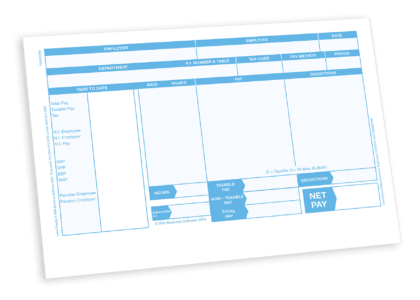The regulation on annual leave in Turkey, which is also defined in our Constitution, is included in Articles 53-61 of the Labour Law No. 4857, and the Annual Leave Regulation published in the Official Gazette dated 03.04.2004 and numbered 25391 was also issued.
1. Entitlement to annual leave and leave periods in Turkey
According to Article 53 of the Labour Law No. 4857, annual leave in Turkey must be granted to employees who have worked for at least one year, including the trial period, from the date of commencement of employment in the workplace. The provisions on annual leave shall not apply to those who work in seasonal or campaign works lasting less than one year due to their nature.
Due to the mandatory nature of annual leave, it is not possible to waive this right. Therefore, contractual provisions containing a commitment or obligation not to use annual leave will be ignored.
According to Article 53 of the Law and Article 9 of the Regulation, the periods of annual leave to be granted to employees are related to the length of service or age of the employee who will take leave or the job of the employee. These periods are indicated in the table below.
| Employee’s seniority, age or work | Annual leave in Turkey period |
| From one year to five years (including the fifth year) | 14 days |
| More than five years less than fifteen years | 20 days |
| Fifteen years (inclusive) and more | 26 days |
| Being eighteen years of age or younger | 20 days |
| Fifty and over | 20 days |
| Those who work underground and have a seniority of one to five years (including the fifth year) | 18 days |
| Those who work underground and have a seniority of more than five years and less than fifteen years | 24 days |
| Those who work underground and have a seniority of more than fifteen (including) years | 30 days |
These periods are minimum. Therefore, they can be increased by labour contracts or collective labour agreements.
As explained above, in order to be entitled to annual leave, it is necessary to have worked in the workplace for one full year. The concept of one year should be understood as 365 days. According to Article 54 of the Law and Article 4 of the Regulation, in the calculation of the one-year period;
- The periods of employment in one or several workplaces of the same employer must be combined. Even if the employee has previously worked in a workplace of the employer that is not covered by the Labour Law, this seniority should also be evaluated in the calculation of this period.
- The periods worked in the workplaces affiliated to the same ministry and the workplaces of legal entities affiliated to the same ministry and the periods worked in the workplaces of state economic enterprises or banks and institutions established on the basis of special laws or authorization granted by special laws or their affiliated workplaces shall be taken into consideration in the calculation of one year.
- The cases specified in Article 55 of the Law should be accepted as worked in the calculation of one year working period. These cases are as follows.
1. The days when the employee cannot go to work due to an accident or illness (up to a maximum of six weeks exceeding the notice period he/she is entitled to according to his/her working period as specified in subparagraph b of paragraph 1 of Article 25),
2. Days when female workers cannot be employed before and after childbirth (except for unpaid leave of up to six months),
3. Days during which the worker is absent from his/her work, except for active military service, during manoeuvres or when he/she is deployed due to any law (no more than 90 days of this period per year shall be counted),
4. Provided that the worker resumes work, 15 days of the time the worker spends without working as a result of the work being suspended for more than one consecutive week due to compelling reasons at the workplace where the worker is working,
5. Time spent in cases regulated in Article 66 of the Labour Law and counted as working time,
6. Week holidays, national holidays and general holidays,
7. In accordance with the provisions of the by-laws issued in accordance with the Law No. 3153, the half-day leave that should be given to the employees working in X-ray offices other than Sunday (the said by-law was repealed by the Presidential Decree No. 4144 published in the Official Gazette dated 25.06.201 and numbered 31522),
8. According to the 2nd Supplementary Article of the Law, the periods of compassionate leave that must be granted to the employees with pay for up to 10 days in whole or in parts within a year in case of marriage, birth or adoption of a child or death of a parent, spouse, sibling or child, and up to three days for the treatment of a child with a disability of at least 50% or a chronic disease, provided that it is based on a sickness report and used only by one of the working parents,
9. Other leaves granted by the employer and short-time working periods as stipulated in Article 65 of the Labour Law,
10. Duration of annual leave in Turkey granted,
11. The days when the workers cannot continue their work due to their participation in mediation meetings, arbitration committees, serving as workers’ representative in these committees, attending the councils, boards, commissions and meetings established in accordance with the legislation on labour life, or attending the conferences, congresses or boards of international organisations related to labour issues as a worker or union representative.
According to Article 54 of the Labour Law, in the event that the employee’s attendance is interrupted during the one-year period, except for the cases listed in Article 55, the time to complete these gaps must be added in the calculation of one year. In the calculation of the one-year period required to be entitled to annual paid leave, the day of the previous leave is taken as the basis and the annual leave in Turkey is used within the next service year.
2. Utilisation of annual leave in Turkey
In the implementation of the annual leave calculated according to the above principles, a number of criteria must be followed (Article 56 of the Labour Law and Article 6 of the Regulation):
The main principle is that the annual leave in Turkey period should not be divided by the employer and these periods should be used continuously. However, it is possible to use the leave periods in parts, one part of which is not less than ten days, if the parties agree.
Other paid and unpaid leave, rest and sick leave granted by the employer during the year cannot be deducted from the annual leave. National holidays, general holidays and week holidays that coincide with annual leave days are not counted as annual leave in Turkey. For example, if an employee whose annual leave period is 14 days has two weekends and 30 August Victory Day between the dates when he/she takes his/her annual leave, the leave period should be 17 days.
At this point, it is necessary to make an explanation to the workplace about how whether Saturday is a week holiday or not affects the duration of leave. In general terms, in order for Saturday to be important, firstly, Sunday must be designated as a week holiday for all workers in the workplace. If the workers use one day of week holiday on different days of the week, or if a day of the week other than Sunday is designated as a holiday in some workplaces, even if it is rare, there is no need to make a discussion for Saturday. However, in many workplaces, there is no work on Saturday in addition to Sunday. This issue causes disputes in practice. If there is no provision in the employment contract or collective bargaining agreement regarding whether Saturday is a week holiday, Saturday will be counted from the annual leave period or if it is determined as a week holiday, Saturday will not be counted from the annual leave in Turkey period. In some contracts, Saturday is accepted as a week holiday, but there are provisions in the contract that Saturday will be considered as a working day in the calculation of annual leave. Accordingly, the 14-day annual leave period will be used as 16 days in the first possibility, 18 days in the second possibility and 16 days in the third possibility.
For those who will spend the leave in a place other than the place where the workplace is established, the employer is obliged to give up to 4 days of unpaid travel leave in total, provided that they make a request and document this issue, in order to cover the time to be spent on the road on their departure and return.
In the event of termination of employment by the employer according to Article 17 of the Labour Law, the periods of notice given according to this Article and the periods of job search leave to be given according to Article 27 cannot overlap with the annual leave period in Turkey.
The employer must keep a leave record book showing the annual leave in Turkey of the employees working in the workplace. According to Article 20 of the Regulation, it is possible to keep track of this leave document through a leave book or cartotex system to be organised according to the same principles.
According to Article 13 of the Regulation, no distinction can be made between part-time on-call workers and full-time workers in terms of leave periods and leave pay. Such employees benefit fully from the right to annual paid leave as full-time employees. These employees are required to use their leave periods by not working on part-time working days.
Unless otherwise stipulated in the temporary employment contract, the provisions of the Regulation shall apply to the annual paid leave of employees working under temporary employment relationship (Article 14 of the Regulation).
According to Article 5 of the Regulation, the employer or his/her deputy may, in consultation with the leave board or its substitutes, determine that annual paid leave will be granted in certain periods and periods of each year, according to the nature and characteristics of the work carried out in the workplace.
According to the procedure for using annual leave in Turkey;
- According to Article 8 of the regulation, the employee must notify the employer at least one month before the date he/she wants to take leave with a letter containing his/her name, surname, registration number, if any, the dates between which he/she will use the leave and, if desired, his/her request for unpaid travel leave (Article 7 of the regulation),
- The employer or his/her representative shall notify these requests to the leave committee or his/her substitute.
- The leave committee or the employer is not bound by the date of leave requested by the worker. However, the schedules to be prepared by the said board to show the order and rotation of leave shall be prepared by taking into account the request of the worker and the work situation.
- In the case of leave requests coinciding with the same date, priorities will be determined by taking into account seniority in the workplace and the date of use of the previous leave.
- In the event that those who have taken travel leave come to work without using this period, the employer may not reinstate them before the end of this period.
Apart from these, collective leave is also included in the regulation. In this application, the following points should be considered:
- The collective leave period should coincide with the beginning of April and the end of October (Article 10 of the Regulation).
- In the case of collective leave, the leave committee should organise and announce the leave schedules in such a way that the workers who are going on collective leave start their leave at the same time and show the end of each worker’s leave period according to the duration of their leave and requests for travel leave (Article 10 of the regulations).
- Collective leave periods can also be organized to cover workers who have not yet earned their annual leave in Turkey. However, in this case, if collective leave is not taken in the following year or years, the date of entitlement to future annual paid leave must be determined in accordance with general principles (Article 10 of the Regulation).
- The employer or his representative may exclude a sufficient number of workers from collective leave for compulsory services such as protecting the workplace, maintaining, preparing, cleaning or ensuring the safety of tools, equipment, equipment or machinery in the workplace (Article 11 of the Regulation).
The last paragraph of Article 56 of the Labour Law No. 4857 and the last paragraph of Article 6 of the Regulation are related to the use of annual leave by the sub-employer workers in the workplace. Accordingly, the annual paid leave period of the sub-employer workers who continue to work in the same workplace despite the change of sub-employer will be calculated by taking into account the periods of employment in the same workplace. According to the provision of the article, the main employer is obliged to check whether the annual paid leave periods entitled by the workers employed by the sub-employer are used and to ensure that they are used within the relevant year, and the sub-employer is obliged to provide the main employer with a copy of the leave registration document that it is obliged to keep as an annual leave book in Turkey.





